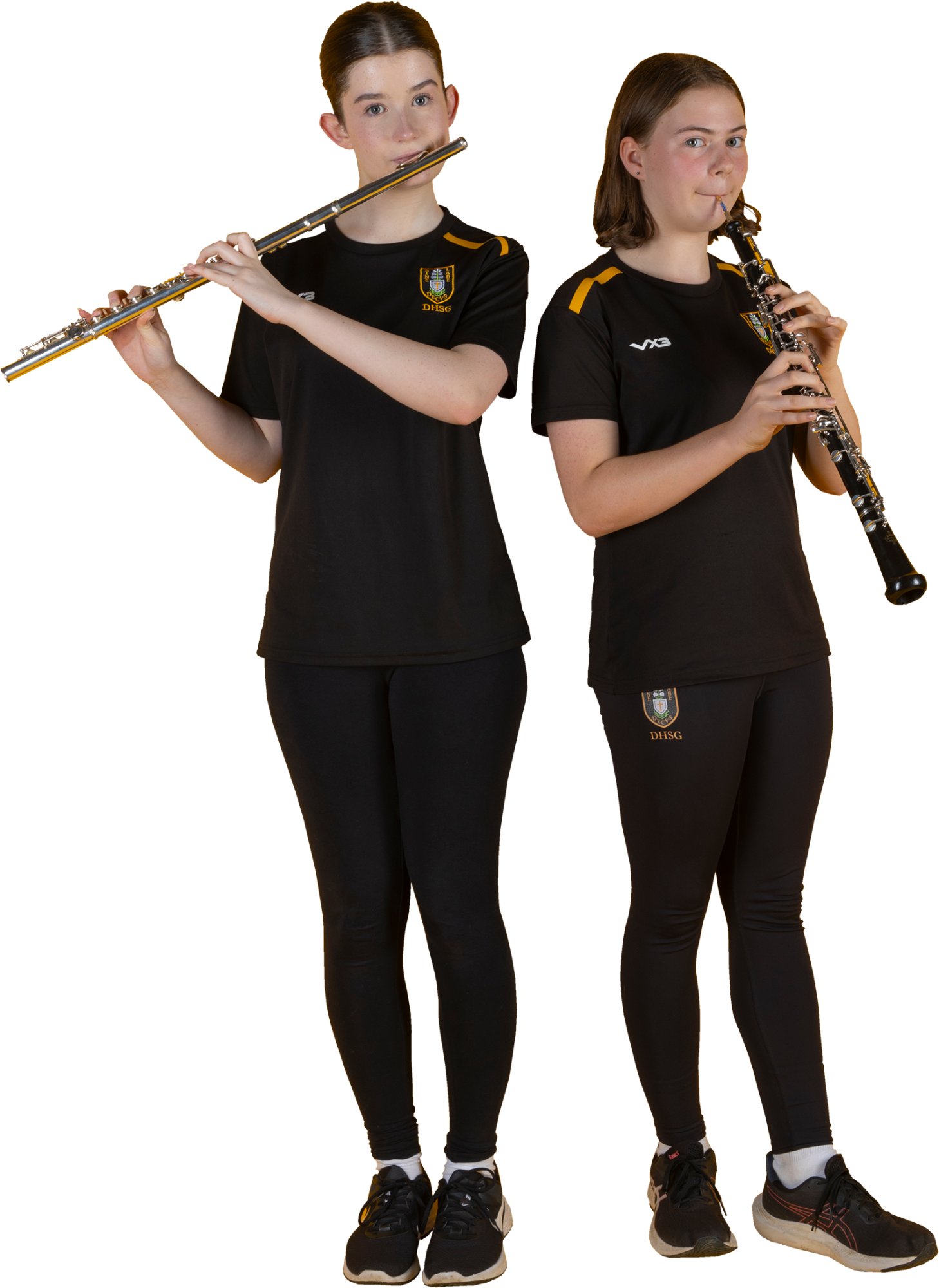Community and partnerships
Community and partnerships
At DHSG we are fully committed to promoting equality, community cohesion and fundamental British values in line with the Department for Education (DfE) recommendations, and the requirements of the Equalities Act 2010, to keep children safe and prepare them for life in modern Britain. We welcome the DfE’s focus on strengthening the ‘spiritual, moral, social and cultural (SMSC) standard’ by actively promoting the:
‘Fundamental British values of democracy, the rule of the law, individual liberty and mutual respect and tolerance for those with different faiths and beliefs, and encourage students to respect other people, with particular regard to the protected characteristics set out in the Equality Act 2010.’
Our vision recognises and celebrates diversity and welcomes the contributions which different groups and individuals make to our community. By promoting shared values and creative inquisitiveness, over lazy acceptance of doctrine and stereotypes, we aim to break down barriers and challenge students to think for themselves and see their shared place in the world.

Our vision of a cohesive community is one where:
- There is a common vision and a sense of belonging for all communities.
- The diversity of people’s different backgrounds and circumstances are appreciated and positively valued.
- Those from different backgrounds have similar life opportunities.
- Strong and positive relationships are being developed between people from different backgrounds in the workplace, in schools and within neighbourhoods.
We strive to ensure that the culture and ethos of the school reflects the diversity of all members of the school community, where everyone is equally valued and treats one another with respect and fairness. Students are provided with the opportunity to experience, understand and celebrate diversity and we work towards eliminating all discrimination, on the grounds of race, sex, sexuality, gender reassignment, disability, age, religion and belief, pregnancy and maternity. We believe that all students, employees, stakeholders and members of our local and global community should be treated with dignity and respect at all times.
We actively:
- Encourage the development of a strong sense of identity and individual liberty, not only as individuals but as part of different community groups (locally, nationally and globally).
- Encourage positive and open attitudes towards diversity and develop the skills, the understanding and the confidence to challenge prejudice, discrimination and stereotyping.
- Support development of active citizens, citizens who know their own rights and responsibilities as well as knowing and respecting those of others.
- Develop students who understand the British parliamentary system and democracy.
- Develop students’ understanding of British Law.
- Provide opportunities to positively interact and build relationships with people from a range of different backgrounds within their local community as well as within the wider society.
- Provide strong Spiritual, Moral, Social and Cultural support and teaching to enable all aims to be achieved.
Examples of our partners past and present
- Adventure International
- Against Breast Cancer
- Age UK
- Alternative complementary education service
- Amnesty International
- Army
- Babcock International
- Babcock Marine
- British Council
- British Red Cross
- CAMHS
- Camp Wild at Escot Park
- Camps International
- Careers South West
- City College Plymouth
- Coca-Cola Enterprises
- Coombe Dean School
- Devon and Somerset Fire and Rescue
- Devon County Council
- Devon Education Business Partnership/Careers South West
- Duke of Edinburgh Award Scheme
- Education Business Partnership South West
- Effervescent UK
- Engineering Development Trust (EDT) Go-4-set
- Engineering UK
- Erasmus+
- Euroscola
- Exeter University
- Fire Service
- Futures Entrepreneurship Centre
- Holocaust Educational Trust
- Institute of Education Confucius Institute for Schools
- Institute of Physics
- KPMG
- LEPRA
- Local Heroes Charity
- Mayflower 400 UK
- Merlin Entertainments
- Mount Batten Centre
- National Marine Aquarium
- NUB Sound LTD, Plymouth
- Nuffield Foundation
- Ogden Trust
- Oxbridge applications
- Padstow Bike Hire
- Parliamentary Education Centre
- Peninsula Arts
- PiXL
- PLT
- Plymouth Argyle Football Club
- Plymouth City Council
- Plymouth Domestic Abuse Services
- Plymouth Life Centre
- Plymouth Manufacturing Group
- Plymouth Marine Laboratory
- Plymouth Schools Sports Partnership
- Plymouth Ski Centre
- Plymouth Tea
- Plymouth University
- Plymouth University Law Dept
- Plymouth University Peninsula Schools of Medicine and Dentistry
- PWC UK
- Rotary Club Plymouth
- Routes into Languages
- Routeways
- Royal Society of Biology
- Royal Society of Chemistry
- SCOMIS
- School Nurses
- Slapton Ley Field Centre
- South West Academics Trust
- Sutton Trust
- Ten Tors
- The Artful Chocolatier
- The Barbican Theatre
- The Theatre Royal, Plymouth
- The UK Youth Parliament
- The Link Partnership:
Devonport High School for Boys, Eggbuckland Community College, Notre Dame School
St Boniface’s College - TR2 Plymouth
- The Zone Plymouth
- UCAS
- UTC Aerospace Systems
- Uniadmissions
- United Kingdom Mathematics Trust
- University of Cambridge
- University of Oxford
- University of St Mark and St John
- Visions in Education
- Wembury Marine Centre
- Widening access to medical school WAHMS
- You’re Hired Plymouth
- Young Devon
- Young Enterprise

